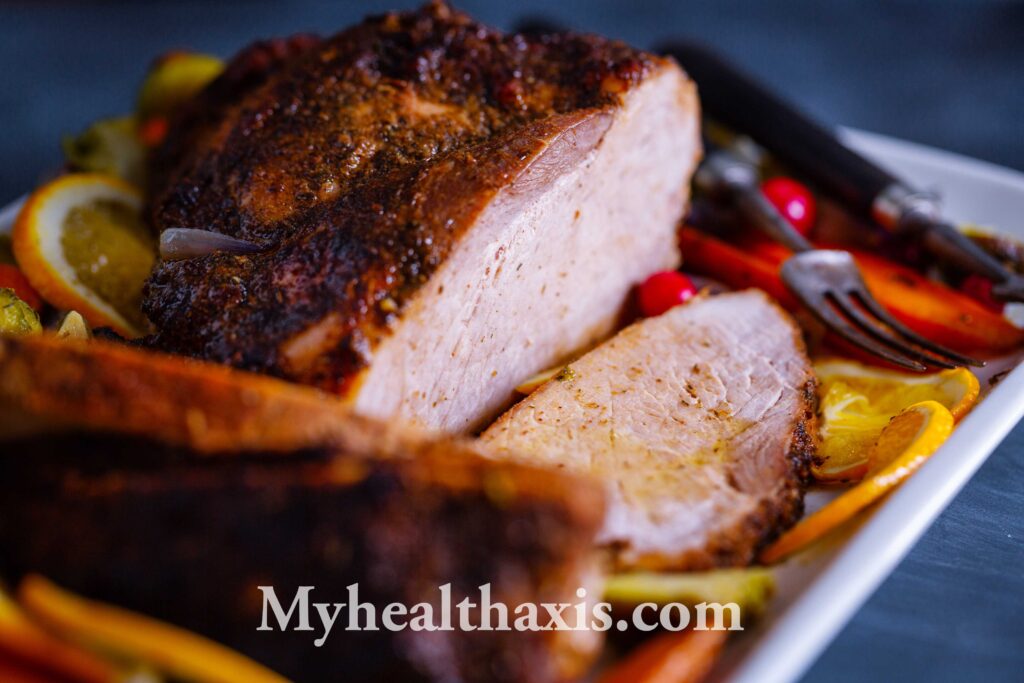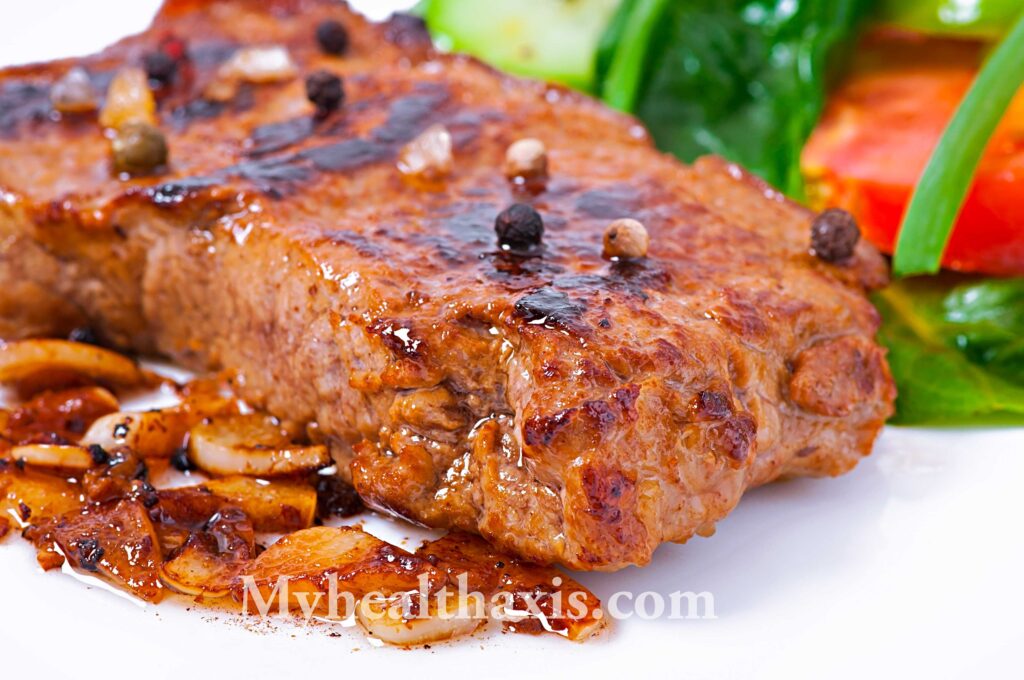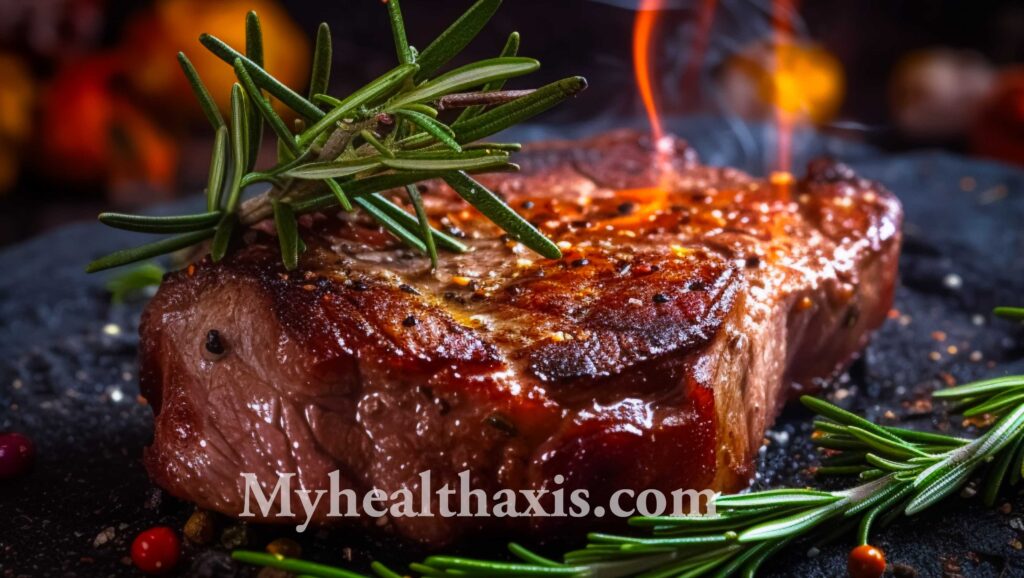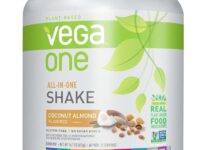Brisket Nutrition: 6 Health Benefits of Brisket Nutrition

Introduction to Brisket Nutrition
Brisket Nutrition, a cut of beef that comes from the breast or lower chest of the cow, is not only a culinary delight but also offers a range of nutritional benefits. As a staple in barbecue culture, understanding the nutritional composition of brisket is crucial for those mindful of their dietary intake.
This introduction aims to delve into the intricate details of brisket nutrition, exploring its macronutrient profile, vitamin and mineral content, and how various cooking methods can impact its nutritional value. Whether you’re a seasoned brisket enthusiast or someone curious about integrating it into your diet, this exploration will provide valuable insights into the health aspects of enjoying this flavorful cut.
See Also: Core Nutritionals: Strategies for Maintaining a Balanced Diet
Is Brisket a Healthy Meat?
While brisket is a flavorful and protein-rich meat, its healthiness depends on factors like preparation and portion control. It contains essential nutrients like protein, iron, zinc, and B vitamins. However, brisket is also relatively high in saturated fat, which, when consumed excessively, may contribute to health issues. Opting for lean cuts, practicing moderate portion sizes, and employing healthier cooking methods can make brisket a part of a balanced diet. As with any food, moderation and mindful choices are key to enjoying brisket as a component of a healthy eating plan. For more information about brisket nutrition, visit: https://fdc.nal.usda.gov
Is Brisket Fatty or Lean?
Brisket nutrition is considered a relatively fatty cut of beef. It contains both intramuscular and external fat layers, contributing to its rich and flavorful profile. While the marbling of fat enhances the taste, it’s essential to be mindful of the overall fat content, especially saturated fat, for those concerned about their dietary fat intake. Choosing leaner cuts or trimming excess fat before cooking can help strike a balance between savoriness and health considerations.
What is The Nutritional Value of Brisket Cut?
The nutritional value of brisket can vary based on factors such as cooking methods and preparation. In a typical 3.5-ounce (100-gram) serving of cooked beef brisket nutrition:
- Calories: Approximately 250-300 calories.
- Protein: Around 25-30 grams, providing essential amino acids.
- Fat: Approximately 15-25 grams, with a mix of saturated and unsaturated fats.
- Vitamins: Contains B vitamins, including B12, B6, niacin, and riboflavin.
- Minerals: Good source of iron, zinc, phosphorus, and selenium.
Keep in mind that these values can vary, and it’s crucial to consider the cooking method and any additional ingredients or sauces used, as they may impact the overall brisket nutrition and it’s content. Additionally, moderation and balance are key when incorporating brisket into a well-rounded diet.
Is Brisket Full of Fat?
Yes, brisket is a cut of beef that tends to be relatively high in fat. It contains both intramuscular fat (marbling) and external fat layers, contributing to its rich and flavorful taste. While the fat content enhances the overall experience of eating brisket, it’s important to be mindful of portion sizes, especially for those who are conscious of their fat intake for health reasons. Choosing leaner cuts or trimming excess fat before cooking can be options for those looking to reduce the overall brisket nutrition fat content.
Beef Brisket Calories Per 100g
The calorie content in beef brisket can vary slightly based on factors such as cooking methods and fat content. On average, in a 100-gram serving of cooked beef brisket, you can expect approximately 250-300 calories. Keep in mind that specific values may differ depending on the cut, cooking method, and additional ingredients used in preparation.
Beef Brisket Nutrition Cooked
In a 3.5-ounce (100-gram) serving of cooked beef brisket, the approximate nutritional values are as follows:
- Calories: 250-300 calories
- Protein: 25-30 grams
- Fat: 15-25 grams (a mix of saturated and unsaturated fats)
- Carbohydrates: Typically less than 1 gram
Additionally, beef brisket nutrition is a good source of various vitamins, including B12, B6, niacin, and riboflavin, as well as minerals like iron, zinc, phosphorus, and selenium. Actual values can vary based on factors such as cooking methods and any added ingredients during preparation.
Smoked Brisket Nutrition Facts
The nutritional content of smoked brisket can vary based on factors such as the cut of meat, cooking methods, and any added ingredients. In a 3.5-ounce (100-gram) serving of smoked beef brisket, you can generally expect similar nutritional values as in cooked brisket:
- Calories: Approximately 250-300 calories.
- Protein: Around 25-30 grams.
- Fat: Approximately 15-25 grams (a mix of saturated and unsaturated fats).
- Carbohydrates: Typically less than 1 gram.
These values are indicative and can vary depending on specific preparation methods and cuts of brisket used. While smoking can add a distinct flavor, it’s essential to consider any additional ingredients or rubs that might contribute to the overall brisket nutrition profile.
Brisket Calories Per Slice
The calorie content per slice of brisket can vary based on factors such as thickness, cooking methods, and the specific cut of meat. On average, a slice of beef brisket weighing approximately 3 ounces (85 grams) may have around 150-200 calories. Keep in mind that these values are approximate, and the actual calorie content can differ based on various factors, including how the brisket is prepared and cooked.
Fatty Brisket Calories
The calorie content in fatty brisket can vary based on factors like cooking methods and specific cuts. On average, a 3.5-ounce (100-gram) serving of cooked fatty brisket may contain approximately 250-300 calories. It’s important to note that the actual calorie content can fluctuate depending on factors such as marbling, fat content, and any additional ingredients used during preparation. If you’re looking for more precise information, it’s advisable to check nutritional labels or consult specific cooking recipes.
The calorie content in beef brisket can vary slightly based on factors such as cooking methods and fat content. On average, in a 100-gram serving of cooked beef brisket, you can expect approximately 250-300 calories. Keep in mind that specific values may differ depending on the cut, cooking method, and additional ingredients used in preparation.
Nutritional Composition of Brisket
The nutritional composition of brisket varies, but in a general 3.5-ounce (100-gram) serving of cooked beef brisket:
- Calories: Approximately 250-300 calories.
- Protein: Around 25-30 grams, providing essential amino acids.
- Fat: Approximately 15-25 grams, consisting of both saturated and unsaturated fats.
- Vitamins: Contains B vitamins, including B12, B6, niacin, and riboflavin.
- Minerals: Good source of iron, zinc, phosphorus, and selenium.
It’s important to note that these values can fluctuate based on factors such as cooking methods and any additional ingredients used. While brisket is flavorful and nutrient-rich, moderation and a balanced diet are key for optimal health.

Caloric Content and Macronutrients
In a 3.5-ounce (100-gram) serving of cooked beef brisket:
- Calories: Approximately 250-300 calories.
- Protein: Around 25-30 grams, providing essential amino acids for muscle function and repair.
- Fat: Approximately 15-25 grams, with a mix of saturated and unsaturated fats.
- Carbohydrates: Generally very low, typically less than 1 gram.
It’s important to consider individual dietary needs and goals when incorporating brisket nutrition into a meal plan, as the macronutrient composition can vary based on factors such as cooking methods and additional ingredients.
Protein in Brisket
In a 3.5-ounce (100-gram) serving of cooked beef brisket, you can expect approximately 25-30 grams of protein. Protein is a crucial macronutrient that plays a vital role in various bodily functions, including muscle development, repair, and overall maintenance. Including brisket in your diet can contribute to meeting your protein requirements, but it’s essential to consider other aspects of your overall dietary plan for a balanced and healthy intake.
Brisket Nutrition: Fats in Brisket
In a 3.5-ounce (100-gram) serving of cooked beef brisket, you’ll find approximately 15-25 grams of fat. The fat content in brisket includes a combination of saturated and unsaturated fats. While the marbling of fat contributes to the rich flavor of brisket, it’s important to be mindful of your overall fat intake, especially if you are concerned about dietary fat for health reasons. Choosing leaner cuts or trimming excess fat before cooking can be strategies to manage fat consumption while enjoying the taste of brisket.
Vitamins and Minerals in Brisket
Beef brisket is a good source of various vitamins and minerals. In a 3.5-ounce (100-gram) serving of cooked beef brisket, you can find:
- Vitamins: Contains B vitamins, including B12, B6, niacin, and riboflavin. These vitamins play essential roles in energy metabolism, red blood cell formation, and overall cellular function.
- Minerals: Brisket is a good source of minerals such as iron, zinc, phosphorus, and selenium. Iron is important for oxygen transport in the blood, zinc supports immune function, phosphorus is crucial for bone health, and selenium acts as an antioxidant.
Incorporating brisket nutrition into your diet can contribute to meeting your daily requirements for these vitamins and minerals, but it’s essential to have a varied and balanced diet to ensure overall nutritional adequacy.
Cooking Methods and Nutrition
The nutritional content of brisket can be influenced by various cooking methods. Here’s a brief overview:
- Grilling or Smoking: Retains the natural flavors but may result in drippings and potential loss of some fat. This method can help preserve the nutritional profile of brisket.
- Braising or Slow Cooking: This method can make the meat more tender, but it may involve using flavorful sauces or liquids, potentially adding to the overall calorie and sodium content.
- Roasting: Cooking brisket in an oven can be a balance between preserving nutrients and adding flavors through seasonings. Temperature control is key to maintaining nutritional value.
- Boiling or Simmering: While this method may result in a plainer taste, it can help retain nutrients as they are less likely to be lost through drippings.
Regardless of the cooking method, being mindful of added ingredients, such as sauces or rubs, is crucial. Additionally, choosing cooking methods that align with personal health goals can enhance the overall nutritional benefits of brisket.
Brisket Nutrition in a Balanced Diet
Incorporating brisket nutrition into a balanced diet can offer valuable nutrients like protein, iron, zinc, and B vitamins. To optimize its place in a balanced diet:
- Moderation: Enjoy brisket nutrition in moderation due to its relatively high fat content. Be mindful of portion sizes to maintain a balanced calorie intake.
- Lean Cuts: Opt for leaner cuts or trim excess fat before cooking to reduce saturated fat content while preserving the protein and nutrient benefits.
- Pairing with Vegetables: Include a variety of vegetables with brisket nutrition to enhance the nutritional profile of your meal. This adds fiber, vitamins, and minerals.
- Healthy Cooking Methods: Choose cooking methods that retain nutrients without excessive added fats. Grilling, roasting, or slow cooking with minimal added oils can be good options.
- Whole Grains: Pairing brisket nutrition with whole grains can provide complex carbohydrates and additional nutrients, contributing to a well-rounded meal.
By incorporating brisket nutrition strategically within the context of a varied and balanced diet, you can enjoy its unique flavors while supporting overall nutritional needs.
6 Health Benefits of Brisket Nutrition
Brisket offers several nutritional health benefits when consumed as part of a balanced diet:
- Protein Source: Brisket nutrition is a rich source of high-quality protein, essential for muscle development, repair, and overall body function.
- Vitamins: It contains B vitamins (B12, B6, niacin, riboflavin), contributing to energy metabolism, red blood cell formation, and neurological health.
- Minerals: Brisket nutrition provides essential minerals like iron, zinc, phosphorus, and selenium, important for functions such as oxygen transport, immune support, bone health, and antioxidant defense.
- Amino Acids: It contains various amino acids, aiding in protein synthesis and supporting various physiological processes.
- Satiety: The protein and fat content in brisket can contribute to a feeling of fullness, potentially assisting in weight management when consumed in moderation.
- Flavorful Nutrient Boost: While providing essential nutrients, brisket’s flavorful profile can make it an enjoyable part of a well-rounded diet.
It’s important to balance the consumption of brisket nutrition with considerations for its fat content. Opting for lean cuts, moderating portion sizes, and incorporating it into meals with vegetables and whole grains enhance its nutritional benefits.
Chicken Breast or Beef Brisket
Choosing between chicken breast and beef brisket nutrition depends on your dietary preferences, nutritional goals, and taste preferences. Here are some factors to consider:
Chicken Breast:
- Lean Protein: Chicken breast is a lean source of protein, making it an excellent choice for those looking to reduce overall fat intake.
- Versatility: Chicken breast is versatile and can be prepared in various ways, adapting to different flavors and cuisines.
- Lower in Saturated Fat: Compared to beef brisket, chicken breast is lower in saturated fat.
Beef Brisket nutrition:
Rich Flavor: Beef brisket offers a rich and savory flavor, especially when slow-cooked or smoked. It’s popular for its unique taste.
Higher in Fat: Brisket is a fattier cut, which contributes to its flavor. However, it also means a higher fat content, including saturated fats.
Nutrient Density: Beef brisket provides essential nutrients like iron and zinc, but it comes with a higher calorie content.
Consider your dietary preferences and nutritional needs. If you’re looking for a lean protein source, chicken breast might be more suitable. If you enjoy the rich taste and are comfortable with a higher fat content, beef brisket can be a delicious option. Ultimately, both can be part of a balanced diet when consumed in moderation.

Conclusion: Brisket as a Nutrient Source
In conclusion, brisket serves as a flavorful and nutrient-rich addition to a well-balanced diet. Its protein content, along with essential vitamins and minerals such as B vitamins, iron, zinc, phosphorus, and selenium, makes it a valuable nutritional source.
However, mindful consumption is key, considering its relatively higher fat content. Opting for lean cuts, practicing moderation, and incorporating brisket into meals with a variety of vegetables and whole grains contribute to a wholesome and satisfying dietary experience. By appreciating brisket as part of a diverse and nutritious eating plan, you can relish its unique taste while supporting your overall health and nutritional requirements.
Frequently Asked Questions (FAQs)
Is brisket a lean or fatty cut of meat?
Brisket is considered a relatively fatty cut, containing both intramuscular and external fat layers.
What is the protein content in brisket?
In a 3.5-ounce (100-gram) serving, brisket provides approximately 25-30 grams of protein.
How many calories are in brisket?
A 3.5-ounce serving of cooked beef brisket typically contains around 250-300 calories.
What vitamins and minerals are present in brisket?
Brisket is a good source of B vitamins (B12, B6, niacin, riboflavin) and minerals like iron, zinc, phosphorus, and selenium.
What are some healthy cooking methods for brisket?
Grilling, roasting, or slow cooking with minimal added fats are healthier options. Braising and smoking can also be flavorful choices.
How can I make brisket a part of a balanced diet?
Enjoy brisket in moderation, choose lean cuts, pair it with vegetables and whole grains, and be mindful of cooking methods and added ingredients.
Can brisket be part of a weight-loss diet?
Yes, but moderation is key. Choose lean cuts, control portion sizes, and consider the overall calorie balance in your diet.
Is brisket suitable for those watching their saturated fat intake?
While brisket contains saturated fat, choosing lean cuts and trimming excess fat can help manage saturated fat intake.
What are the health considerations when consuming brisket?
Considerations include moderation, choosing lean cuts, and being mindful of overall dietary fat and calorie intake.
How does cooking method affect the nutritional value of brisket?
Different cooking methods can impact the nutritional profile. Grilling or smoking may preserve nutrients, while braising or using flavorful sauces may add to the overall calorie and sodium content.


